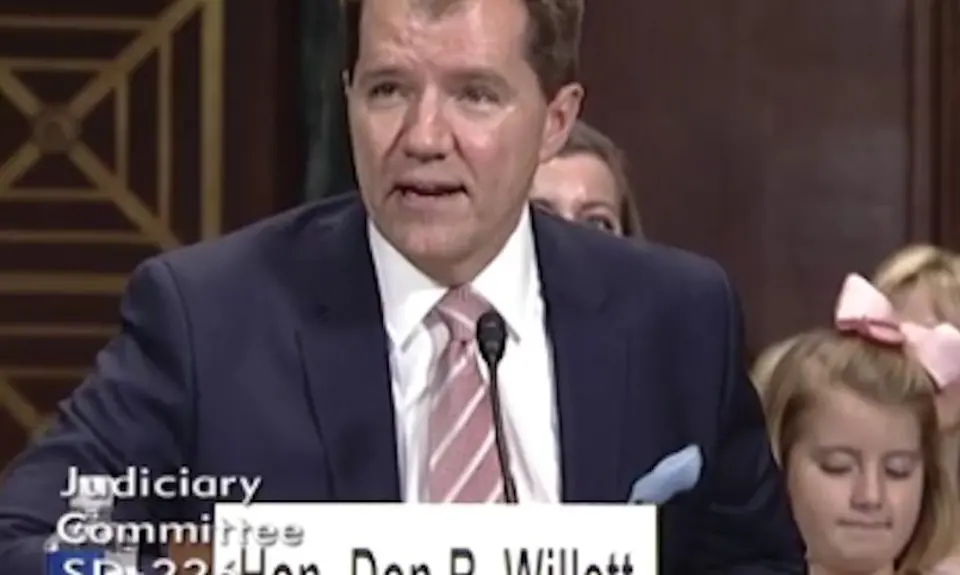“Confirmed Judges, Confirmed Fears” is a blog series documenting the harmful impact of President Trump’s judges on Americans’ rights and liberties.
Trump 5th Circuit judge Don Willett wrote a 2-1 ruling in July that affirmed a lower court’s dismissal without trial of a woman’s claim that a hospital refused to hire her because she is Black, despite evidence that the hospital’s explanation for not hiring her was false. The case is Hassen v. Ruston Louisiana Hospital Company.
LaBrittany Hassen wanted to work as a nurse at the Northern Louisiana Medical Center. She applied for both a full-time and a part-time nursing position there, but was only interviewed for the part-time job, which the hospital offered her. On the same day that Hassen was got the part-time job, the hospital hired two full-time nurses with less experience than Hassen, both of whom were white. She filed a discrimination complaint with the Equal Employment Opportunity Commission, which found “reasonable cause to believe” that the hospital had discriminated against her in violation of Title VII, and issued her a right to sue letter.
When Hassen filed suit, the district court agreed that she had carried her initial burden of showing that the hospital had denied her a job despite her qualifications because of her race while hiring someone with similar or fewer qualifications who was white. But the court granted summary judgment against Hassen without a trial because it claimed that the hospital had demonstrated a valid reason for not hiring her and Hassen had not shown that reason was a pretext. In particular, the court accepted the hospital’s explanation that Hassen had not really applied for a full-time position and accepted a part-time position without asking about a full-time job, and that she never effectively responded to that claim.
Writing for a 2-1 majority, Willett agreed and affirmed the decision dismissing Hassen’s case without trial. But Judge Carolyn Dineen King strongly dissented, pointing out that Hassen had presented evidence that “the hospital’s explanation is false.” In particular, King explained that in the court below, the hospital first asserted that Hassen never applied for the full-time position at all, but then “shifted its reasoning” when Hassen produced an actual copy of her application for that precise job. King criticized the majority for accepting “at face value” the hospital’s later claim that she indicated she would and actually did accept a part-time job, noting that the Fifth Circuit had previously ruled that an employer’s “inconsistent explanations for an employment decision cast doubt on the truthfulness of those explanations.” Hassen’s proof that she did in fact apply for the full-time position and the hospital’s “shifting explanations for not hiring Hassen” for that job, King concluded, clearly showed that there was a genuine issue of material fact that should have precluded summary judgment. Hassen should have had a chance to present her race discrimination case to a jury to decide, but as a result of Willett’s decision, she will not.
As recently as 2015, hiring discrimination against Black Americans is as prevalent as it was 30 years ago. Especially because the law dictates that the burden to prove discrimination is on the employee, it’s essential that our country’s federal judges understand how these systems can disproportionately hurt people of color. Instead, Judge Willett, like other Trump-appointed judges, voted to defend business interests over protecting working people.
